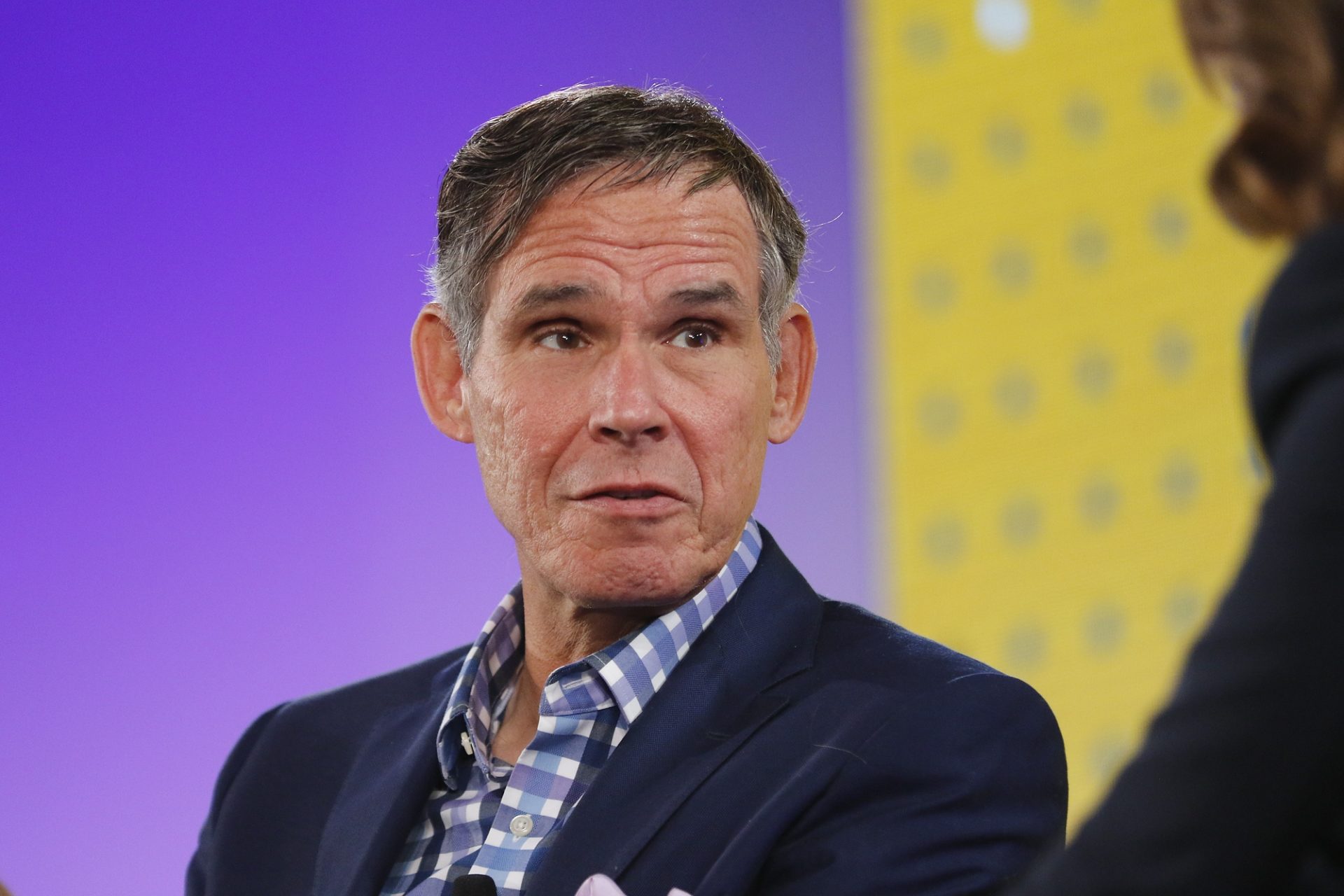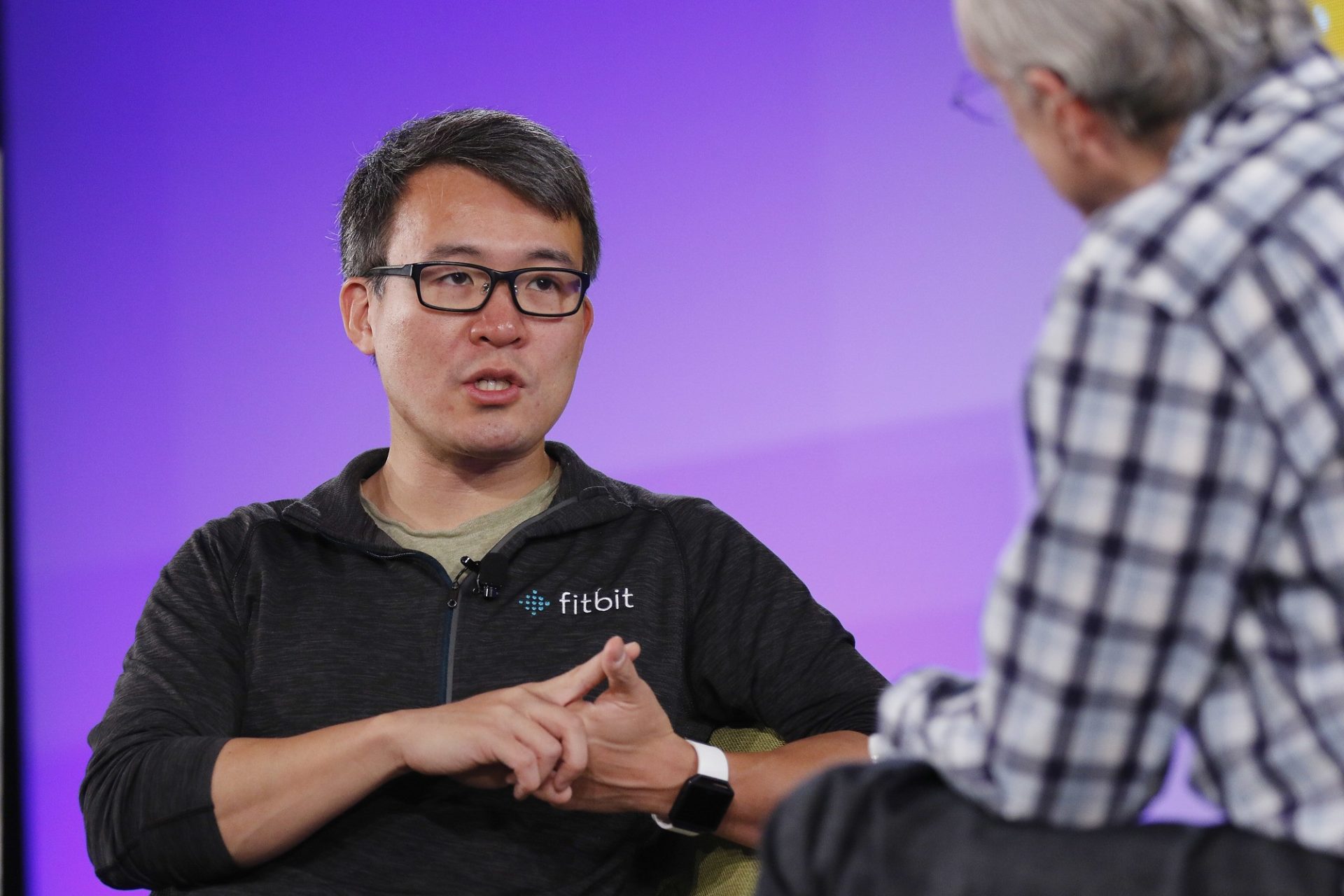
Medicine will be unrecognizable in the coming decades, with technology changes leading to better care at home, vanishing hospitals, and doctors who can monitor patients’ activity and health between visits. That was a recurring theme at the Techonomy 2016 conference in Half Moon Bay, Calif., in mid-November. Speakers in several sessions contributed to the futuristic picture.
In a session on the Internet of Things (IoT) that covered topics ranging from healthcare to satellite imaging and more, cardiologist and author Eric Topol from Scripps Health said that wearable and implantable sensors will enable “unlimited” advances, from remote diagnosis of infections to continual monitoring of heart activity. Ultimately, he said, the goal will be disease prevention—using such sensors to predict negative medical events like heart attacks and stop them before they happen.
Fitbit CEO James Park said in an interview onstage with Chief Techonomist David Kirkpatrick that his company’s devices represent 80% of the U.S. market for wearable activity trackers. He sees sensors like those he sells to be dramatically changing the information doctors have about patients. Doctors currently have no idea what goes on between visits with any given patient, he said; tracking devices offer much more visibility into their activity and fitness during all the time they are not with their physicians. A significant portion of Fitbit’s customer base is companies that offer these devices to employees as part of wellness programs designed to keep people healthier and to lower insurance and medical costs. Park reported that one new study of such an organization identified $1,300 in healthcare cost savings per employee that could be attributed at least in part to the use of Fitbit devices.

Beyond sensors, Topol told attendees that technology innovations have now made it possible for anyone to take useful medical images of themselves or others with readily available smartphone attachments and apps. “I can image any part of the body with a smartphone connected to an ultrasound probe, and that can be done also by any consumer,” he said. “This is a smartphone attachment that gets images of the quality of the $350,000 machine that sits in a hospital. That’s the kind of transition we’re seeing right now.”
These changes will ultimately bring much of healthcare back into the patient’s home, Topol predicted. “The hospital as we know it today will be history,” he said, adding that such facilities would only be necessary for critical illness, operations, and serious uses like that. Most care, including routine monitoring, will take place in the home thanks to sensors and the ability to rapidly transmit information to medical professionals in other locations. He sees this as a major improvement, citing the 25% of patients who are harmed during a hospital stay and the average nightly cost of $4,600 they or their insurance companies pay for them to be there.
In a separate session, Facebook’s Mark Zuckerberg told attendees about promising efforts to deploy artificial intelligence to scan images of moles and other skin abnormalities and determine whether they might be cancerous. Already, he said, results indicate that AI tools can evaluate whether a mole is benign or malignant based on the image from a smartphone camera with accuracy comparable to the best-performing medical professional. This stands to bring high-quality health information to consumers anywhere in the world, requiring only access to a cell phone camera. Through his growing nonprofit, the Chan Zuckerberg Initiative, he envisions taking innovations like this one, engineering them for robust distribution, and helping make them broadly available.
There are, however, significant obstacles that must be overcome to achieve this vision of a more personalized, home-based experience with medicine. Fitbit’s Park noted that insurers and hospital systems still tend to resist programs that incorporate activity trackers and other wearable sensors. He also said that generating more medically relevant information from these devices will require the development of advanced sensors, and that it’s still up to consumers to want to use them. “How do we make adherence, compliance, and engagement really fun?” he asked.
In Topol’s view, data ownership is another serious issue limiting patients’ ability to make the most of the medical advances he described. “This can’t really take hold until the patient, the person, [controls] their data. Today it’s owned by doctors and hospitals,” he said, even though the medical data is generated from the patient’s own body. “That is untenable. That has to change.” Techonomy will continue to focus on technology’s impact in healthcare as the pace quickens.
At Techonomy 2016, a Vision of Disrupted Healthcare
Medicine will be unrecognizable in the coming decades, with technology changes leading to better care at home, vanishing hospitals, and doctors who can monitor patients’ activity and health between visits. Leaders in various sectors who spoke at Techonomy 2016 contributed to the futuristic picture.
















